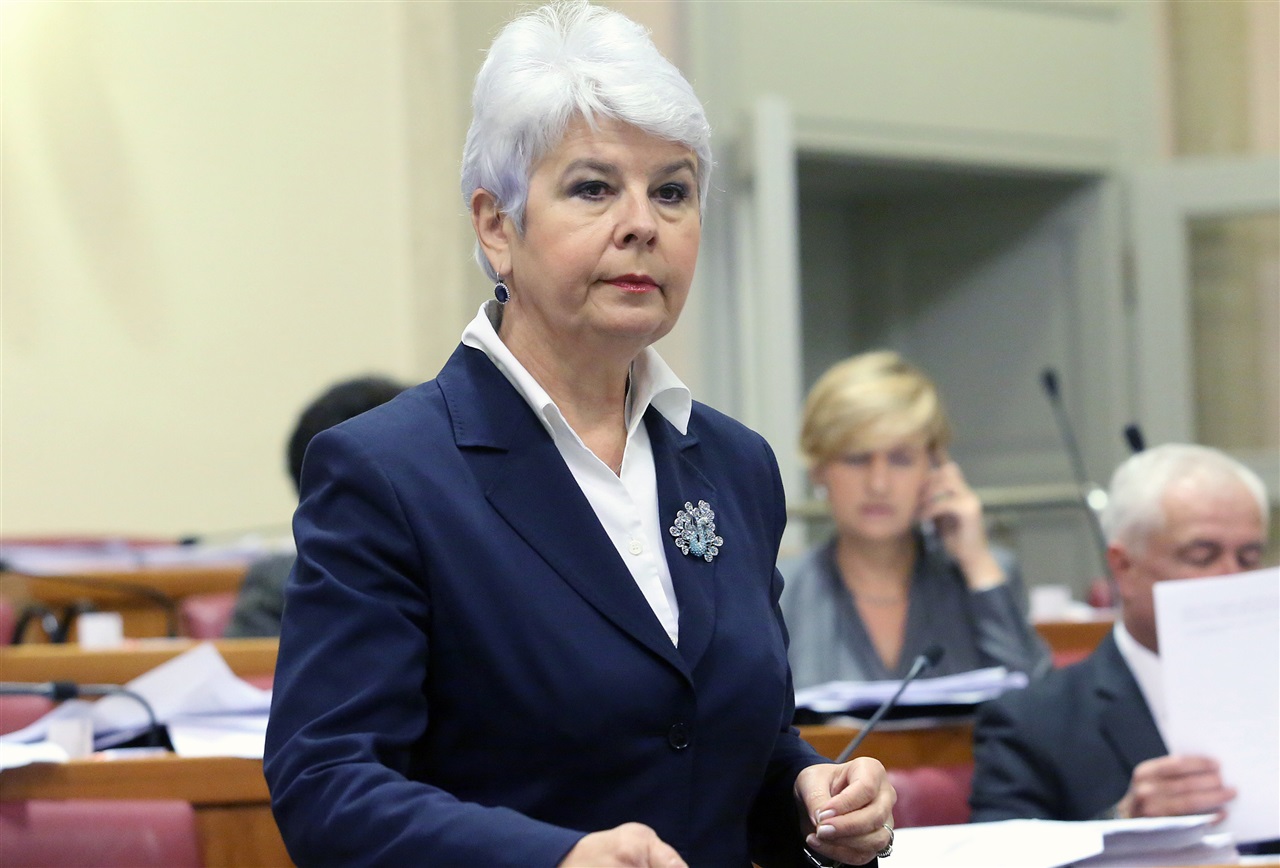
Zagreb - The Croatian Parliament on Wednesday formally expressed deep dissatisfaction at the decision by the Hague-based International Criminal Tribunal for the former Yugoslavia (ICTY) to grant provisional release to the war crimes indictee, Serbian Radical Party leader Vojislav Šešelj, and called on the tribunal to withdraw its decision.
Parliament unanimously adopted a declaration condemning Šešelj's provisional release, recalling that Šešelj was indicted by the tribunal for war crimes and crimes against humanity committed against Croats, Bosnian Muslims and other non-Serbs in Croatia, Bosnia and Herzegovina and the northern Serbian province of Vojvodina in the early 1990s.
The declaration was initiated by a former HDZ prime minister and now an independent MP, Jadranka Kosor. During a debate before its adoption, MPs said that Šešelj's release was an affront to all war victims and that he should be returned to the tribunal's detention unit.
The declaration says that the tribunal's decision was made without uniform criteria and departed from the principle of the rule of law. After returning to Serbia, Šešelj has continued making threats, intimidating people, spreading ethnic hatred and intolerance, insulting and degrading the victims, and making territorial claims on Croatia as a member of the EU and NATO, the document says.
The Croatian Parliament called on the UN Security Council to urgently discuss the work of the ICTY in this case so that trust in international institutions as promotors of the rule of law, justice, peace and stability, would not be undermined.
The declaration emphasised the obligation of the Republic of Serbia as an EU membership candidate to unequivocally condemn any instance of hate speech, the Greater Serbia project and attempts at redrawing internationally-recognised borders, in accordance with international law and the democratic standards observed by the EU member states.
In the preamble to the declaration, Parliament cited the values of peace, freedom, rule of law and democracy, called for the continuation of the EU enlargement process based on evaluation of the progress of each individual candidate country, and stressed the need for full respect for the ICTY Statute. It also cited UN Security Council resolutions, and the Declaration on the Principles of International Law concerning Friendly Relations and Cooperation among States in Accordance with the Charter of the United Nations. (Hina)